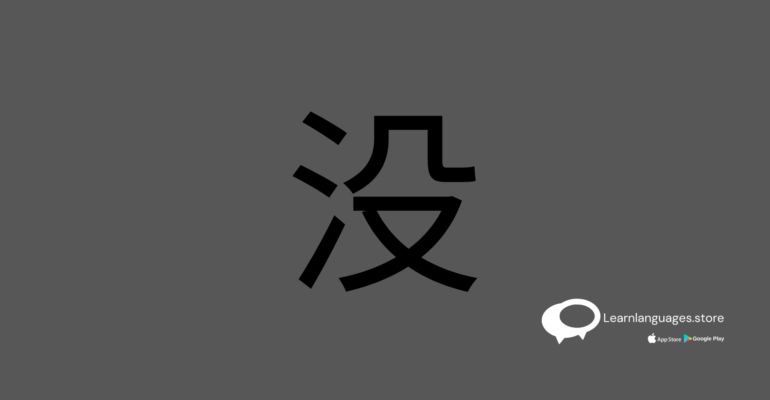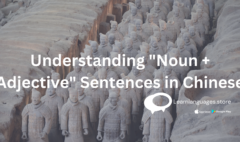The Verb 有 (yǒu) and its Negation in Chinese Grammar
The Verb 有 (yǒu) and its Negation in Chinese Grammar
Estimated reading time: 2 minutes

Introduction: The verb 有 (yǒu) is an essential component of Chinese grammar, meaning “to have” or “to possess.” However, its negation follows a unique pattern compared to other verbs.
Negating 有 (yǒu) with 没 (méi): Instead of using 不 (bù) before 有 (yǒu) to negate it, Chinese grammar requires the use of 没 (méi) as the negating element.
Structure: 没 + 有 (+ Object)
Examples:
- 我 没有 问题。
(Wǒ méiyǒu wèntí.)
I don’t have any questions.
(मुझे कोई सवाल नहीं है।) - 他们 没有 爸爸 妈妈 。
(Tāmen méiyǒu bàba māma.)
They don’t have parents.
(उनके पास माँ-बाप नहीं है।) - 你 爸爸 没有 手机 吗?
(Nǐ bàba méiyǒu shǒujī ma?)
Does your dad not have a cell phone?
(क्या आपके पिताजी के पास मोबाइल नहीं है?)
Common Mistake: Using 不 (bù) with 有 (yǒu) is incorrect. Always use 没 (méi) instead.
Short Form: The negation of 有 (yǒu) can be shortened to 没 (méi) without changing its meaning.
Examples:
- 我 没 钱。
(Wǒ méi qián.)
I don’t have money.
(मेरे पास पैसे नहीं हैं।) - 你 没 男朋友 吗?
(Nǐ méi nánpéngyou ma?)
Do you not have a boyfriend?
(क्या तुम्हारे पास बॉयफ्रेंड नहीं है?)
Exception: Never use 不 (bù) with 有 (yǒu).
Conclusion: Negating the verb 有 (yǒu) with 没 (méi) is a unique aspect of Chinese grammar, requiring careful attention to avoid common mistakes. Remembering this rule will enhance your language proficiency.
Learn Languages Store
Vashi,
Email: services@learnlanguages.store










